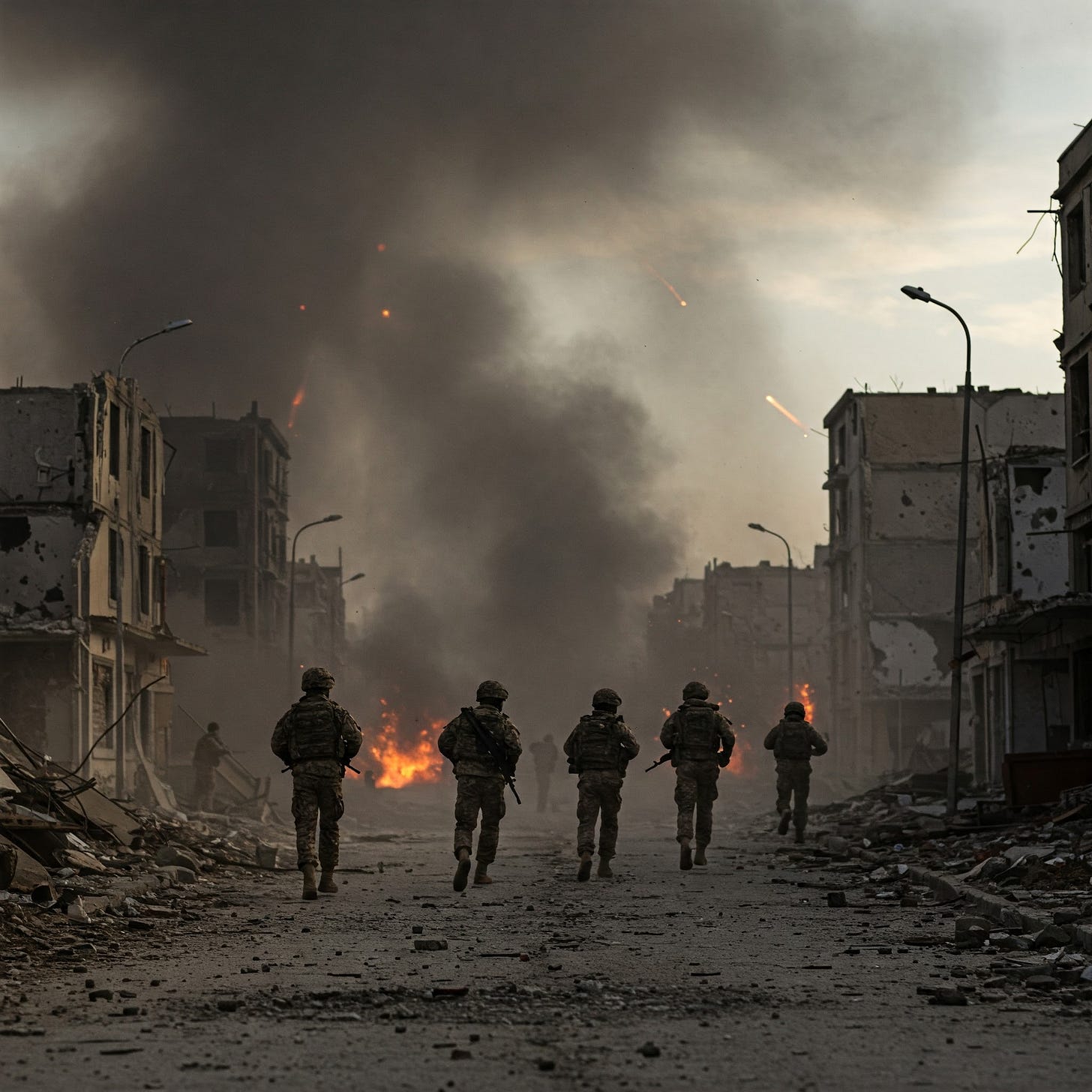Another war begins
#OperationSindoor
Good morning,
It’s Wednesday, and if you woke up hoping the world had gotten a little quieter, I’m sorry to say, it hasn’t.
Today’s story is one of echoes of past wars, broken truces, and a land whose people remain caught in the middle.
Let’s talk about Kashmir. Again.
📌 So, what’s happening?
On Wednesday, India launched airstrikes against targets in Pakistan - a direct military retaliation for the April 22 terrorist attack that left 26 Indian civilians dead near Pahalgam, Kashmir.
Most of the victims were Hindu tourists, and India has made clear who it holds responsible.
The response was swift and punishing: nine sites in Pakistan and Pakistan-administered Kashmir were hit by missiles and drones.
Pakistan denied any involvement in the April attack. And now, after suffering more than 20 deaths in this new round of violence, it has promised to “respond at a time and place of its choosing.” The world holds its breath.
But here’s the thing, this isn’t new. This is the latest page in a book that’s been open since 1947.
📌 The timeline of the conflict
1947: The Partition of British India created two nations, India and Pakistan. Kashmir, a Muslim-majority state with a Hindu king, became the spark.
When tribal militias backed by Pakistan moved in, the king signed Kashmir over to India in exchange for protection. That deal lit the fuse.
1949: The first war ended with a cease-fire brokered by the United Nations. Kashmir is split into two-thirds with India, one-third with Pakistan, with a Line of Control marking the border. It was meant to be temporary. It never was.
1965: Pakistan tried a covert offensive across the Line of Control. India pushed back. Another war, short but deadly. Another peace agreement, just as fragile.
1972: After Pakistan’s defeat in the 1971 Bangladesh war, both nations made the cease-fire line official - the Line of Control. But the name changed more than the reality.
1987–1990s: After rigged elections in Kashmir, armed insurgency exploded. Pakistan backed militants. India cracked down. Violence was the language of the land.
1999: A surprise peace summit between Indian PM Vajpayee and Pakistani PM Nawaz Sharif briefly raised hopes, but then came the Kargil War, just three months later. Peace, as always, was short-lived.
2019: Another major attack, 40 Indian soldiers dead in Pulwama. India launched airstrikes. Pakistan responded. War loomed.
Then India revoked Kashmir’s semi-autonomous status, cut off the internet, jailed political leaders, and flooded the valley with troops. On paper, it brought peace. But that was just silence, not resolution.
📌And what’s happening now in 2025?
April 22, 2025: Gunmen open fire near Pahalgam, a resort town known more for apple orchards than bloodshed. The victims weren’t soldiers, they were civilians, most of them tourists. Seventeen more were wounded.
Within hours, fingers pointed toward Pakistan. Again. Modi's government didn’t name names but promised justice. And now, the missiles have landed.
The Indian government claims it has evidence that this wasn’t a lone act of terrorism but one that had cross-border support.
Pakistan insists on its innocence.
But history says that truth often doesn’t matter when the guns start firing.
📌What’s different this time?
On the surface, nothing. The cycle is familiar: attack, retaliation, denial, promise of revenge, and global unease. But beneath the surface, something has changed.
The target: Tourists, not troops. A direct hit on India's growing Kashmir tourism narrative.
The response: Nine targets, swiftly hit. A more aggressive retaliation than in recent years.
The stakes: Both nations are nuclear-armed. The global political climate is more unstable. And the world's attention is scattered, with conflicts elsewhere, Kashmir may not get the global mediation it once did.
📌 And the Kashmiris?
They remain voiceless. Sandwiched between nationalism and geopolitics, between Delhi and Islamabad, their stories get buried. In every “strike,” “denial,” or “retaliation,” it’s their homes, streets, and futures that are scorched.
One Kashmiri journalist wrote last year: “We’re not asking for peace anymore. We’re asking for silence that doesn’t smell like smoke.”
That’s it for today. If you found this edition interesting and entertaining, please drop a like and follow us for more!
See ya👋



